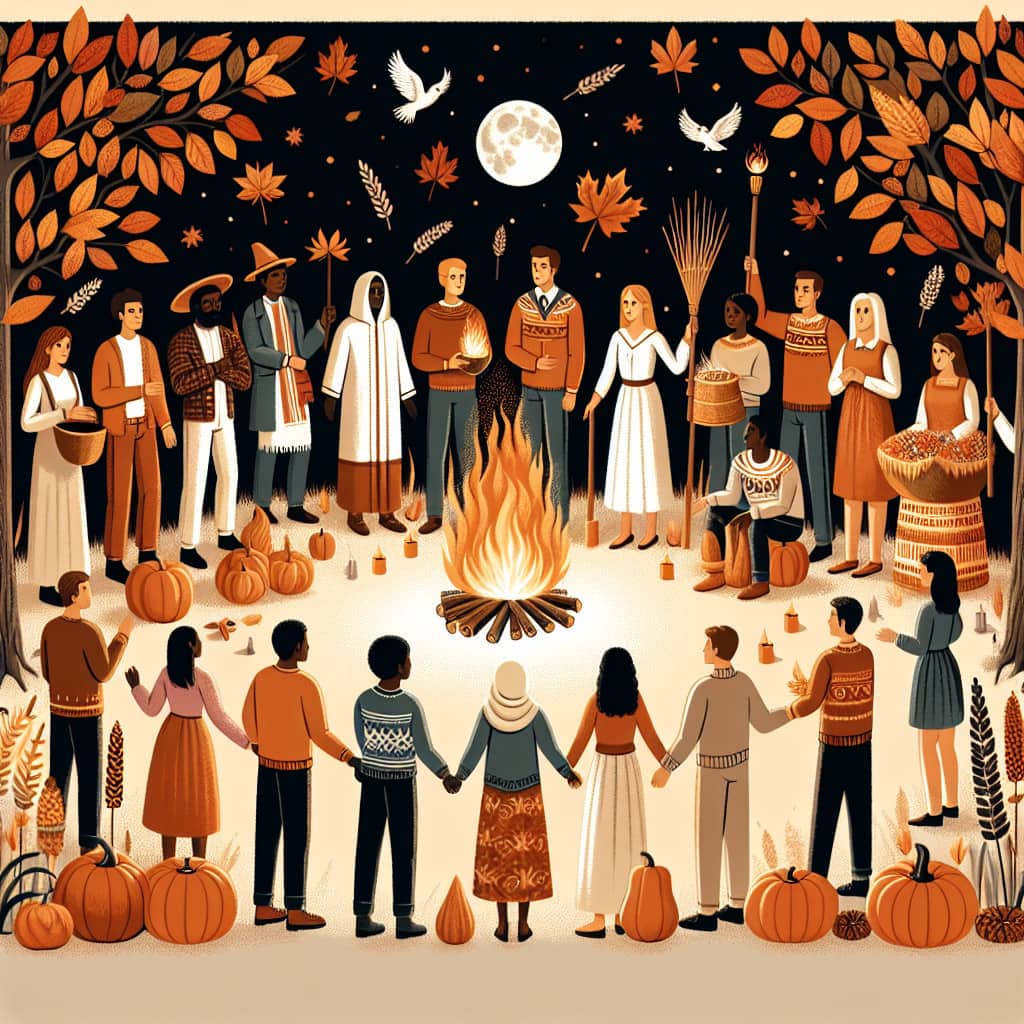Samhain is an ancient Celtic holiday celebrated by many modern Pagans around the world. It is a time of honoring the dead, celebrating the harvest, and connecting with the spirit world. In this article, we will discuss the history of Samhain and explore the various rituals and traditions associated with this important holiday. We will also discuss how modern Pagans celebrate Samhain and why it is an important holiday for the Pagan community.
Samhain is one of the eight Sabbats celebrated by Pagans. It is a time of reflection and remembrance, and is usually celebrated on October 31st. Samhain marks the end of the harvest season and is seen as a time of transition from the light half of the year to the dark half.
What is Samhain?
Samhain is an ancient pagan holiday that is celebrated by Pagans across the world. Samhain is a Gaelic festival marking the end of the harvest season and the beginning of winter or the “darker half” of the year. The festival is celebrated on or around October 31st in the Northern Hemisphere and May 1st in the Southern Hemisphere.
Samhain is a time for Pagans to honor the ancestors and reflect on the passing of the seasons. It is also a time for Pagans to look ahead and plan for the future. The holiday is celebrated with rituals, feasts, and gatherings, and is seen as a time of transition from one season to the next.
What is the history of Samhain?
The history of Samhain dates back to ancient Celtic times. The Celts believed that on Samhain, the boundaries between the physical world and the spirit world were weakened. It was believed that the spirits of the dead would return to the physical world on Samhain. The Celts would leave offerings of food and drink for the spirits, and they would light bonfires to keep the spirits away.
Samhain was also a time for the Celts to celebrate the end of the harvest season and prepare for the winter months ahead. The holiday was celebrated with feasts, rituals, and a bonfire.
How is Samhain celebrated?
Today, Pagans celebrate Samhain with rituals, feasts, gatherings, and bonfires. Pagans may gather together to celebrate the holiday with food, music, and dancing. Some may also choose to perform rituals that honor the ancestors and the changing of the seasons.
One popular ritual for Samhain is to create an ancestor altar or shrine. This altar can be used to honor and remember the loved ones who have passed away. Offerings such as food, drink, flowers, and photos may be placed on the altar.
Another popular ritual is to light a bonfire. Bonfires were once used to keep away any unwelcome spirits, and today they are used to symbolize the coming of winter and the passing of the seasons.
What are some other Samhain traditions?
Many Pagans celebrate Samhain with traditional customs such as apple bobbing, divination, and baking. Apple bobbing is a fun game that involves trying to catch an apple with your teeth. Divination is an ancient practice of trying to divine the future and gain insight from the spirits. Baking and making treats are also popular customs for Samhain.
Some Pagans also choose to wear costumes on Samhain. The costumes may be related to the season or the traditional customs of Samhain, such as death or the return of the dead.
Conclusion
Samhain is an important holiday for Pagans across the world. It marks the end of the harvest season and the beginning of winter, and is a time for Pagans to honor the ancestors and reflect on the changing of the seasons. Samhain is celebrated with rituals, feasts, gatherings, and bonfires. It is also a time for traditional customs such as apple bobbing, divination, and baking.
In conclusion, Samhain is a pagan holiday that has been celebrated for centuries and is still celebrated today. It is a time of honoring ancestors, celebrating the harvest, and preparing for the winter months ahead. Samhain is an important part of pagan culture and is celebrated in many different ways around the world. It is a time of reflection, gratitude, and connection with nature and the spiritual realm. For those who celebrate it, Samhain is a powerful and meaningful holiday.





